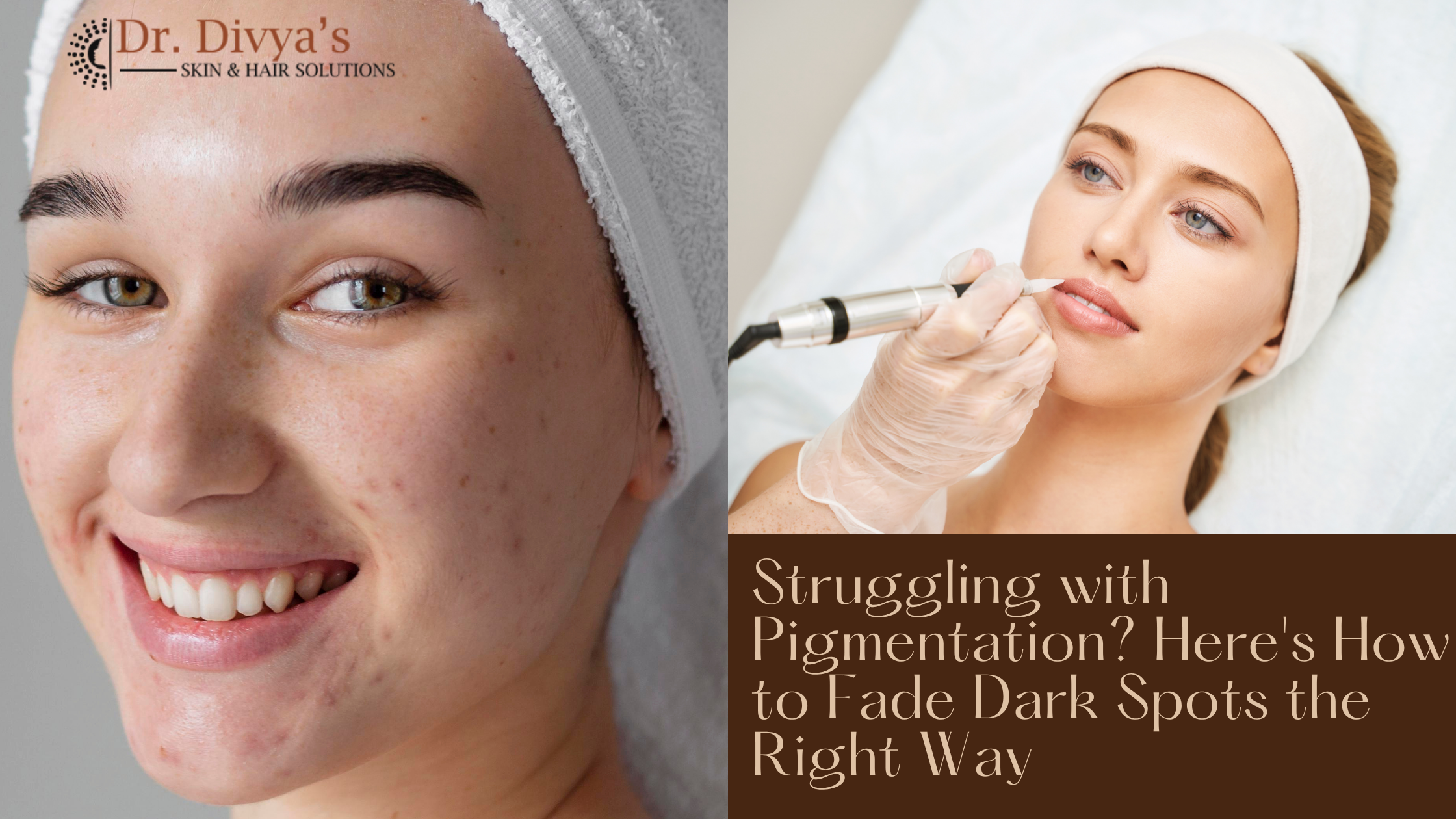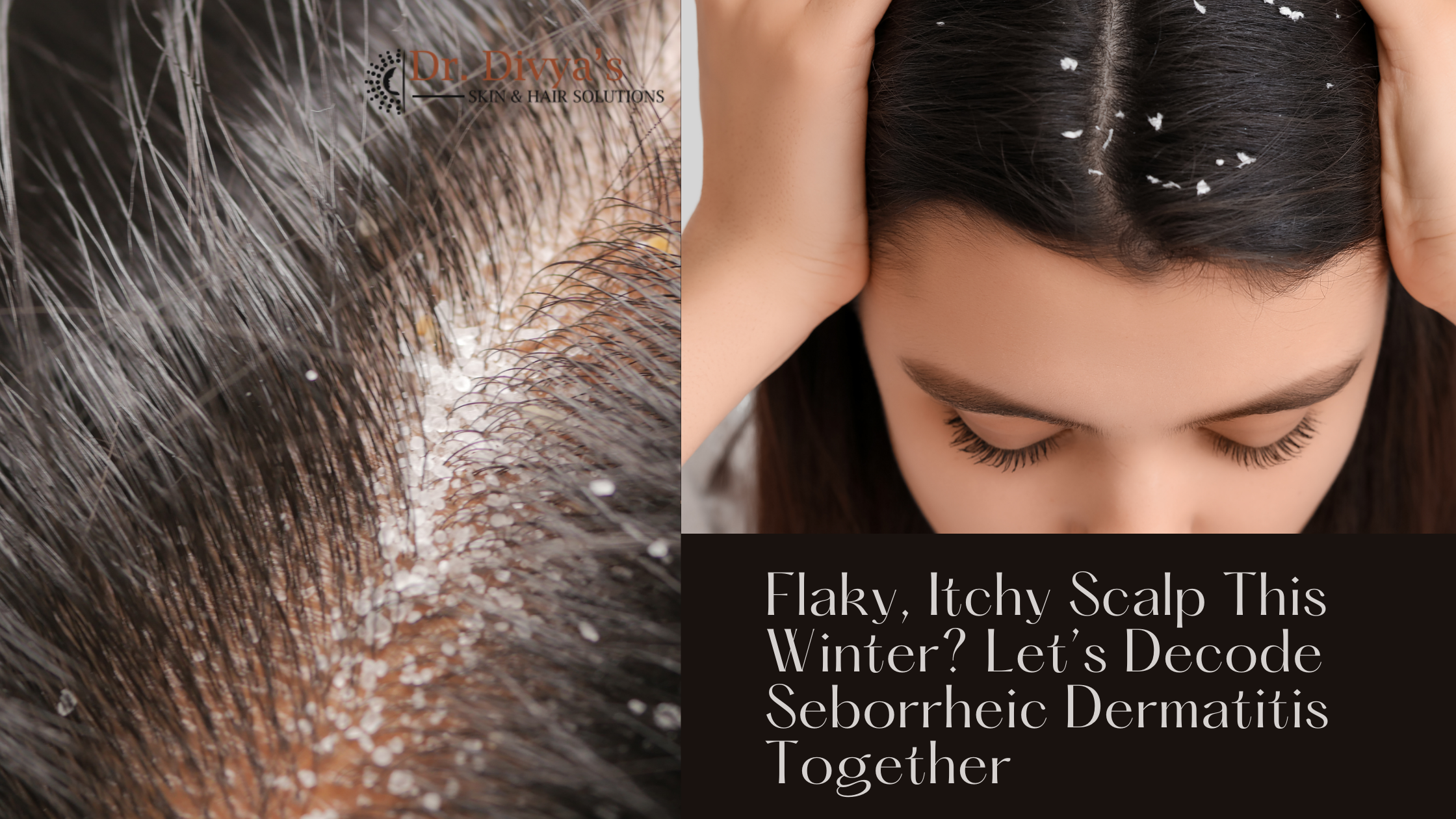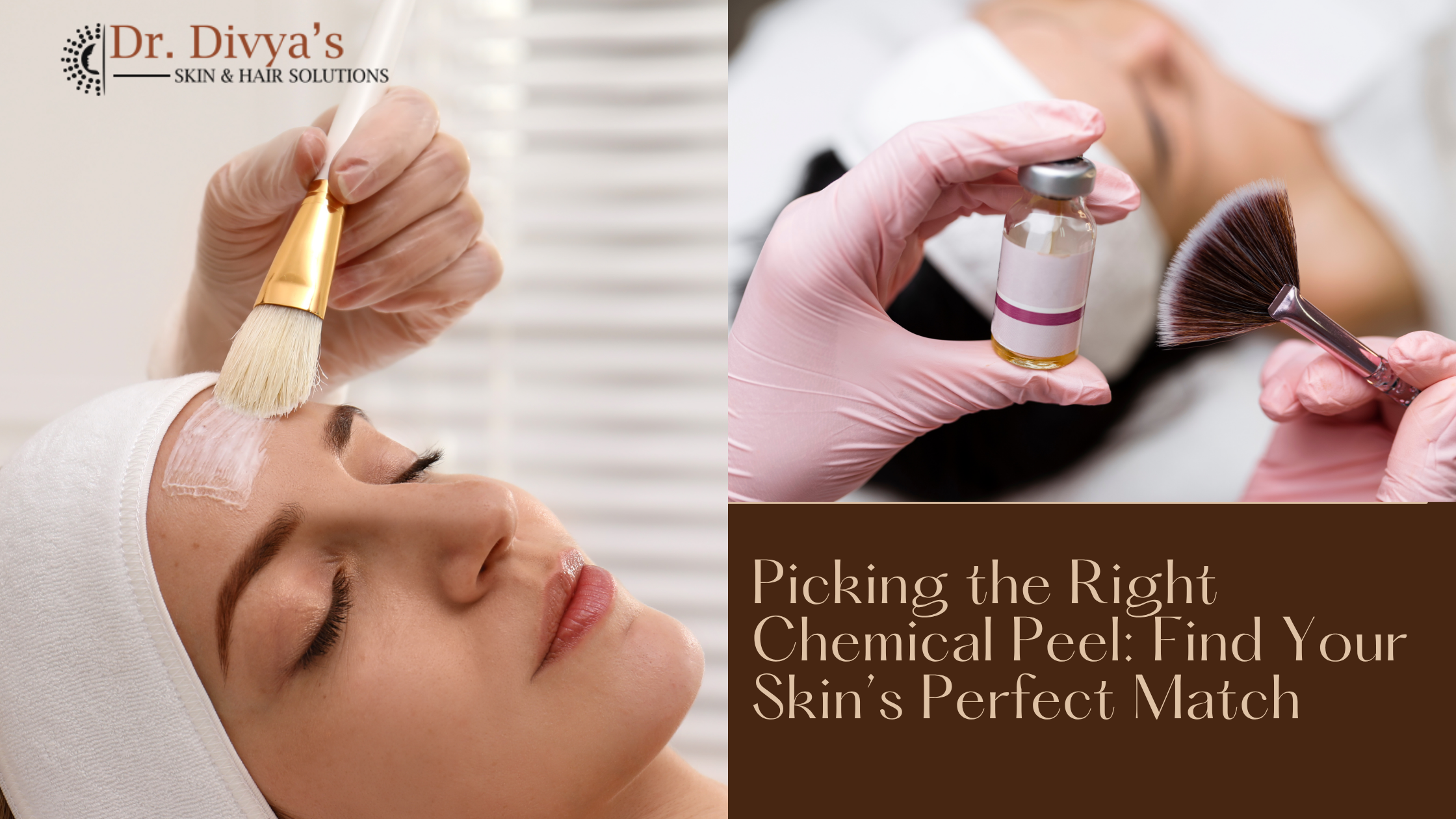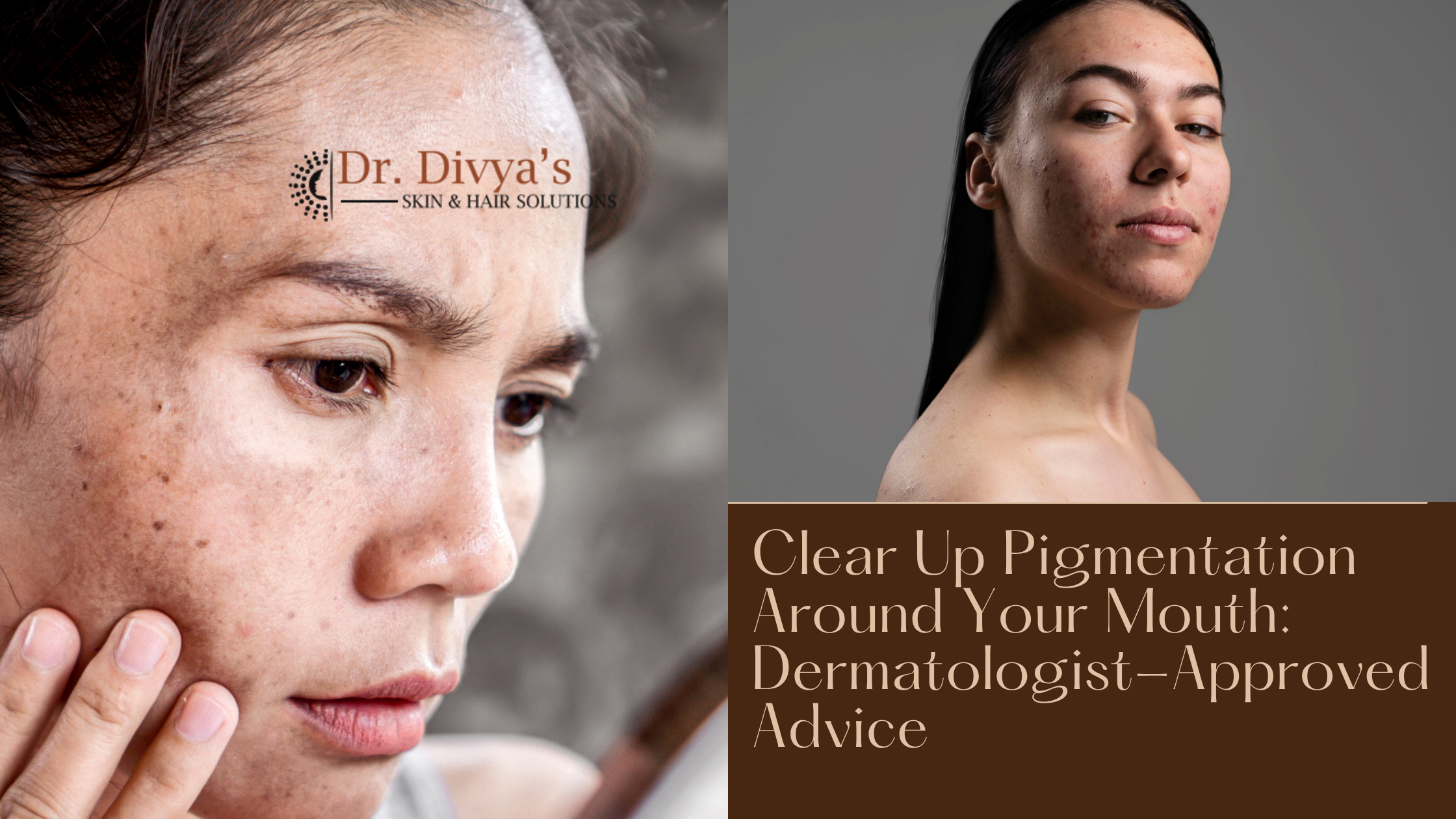Posted date on Jun 04, 2025
Have you been noticing stubborn dark patches, spots, or uneven skin tone on your face or body that just won't go away? You're not alone. In fact, pigmentation is one of the most common skin concerns in India-thanks to our sunny climate, pollution, hormonal shifts, and even our daily habits.
But here's the good news: pigmentation is treatable. With the right skincare, a little bit of patience, and expert help when needed, you can fade those dark spots naturally and safely. Let's break it all down in simple terms.
What Exactly is Pigmentation?
Pigmentation refers to the colour of your skin, which is mainly decided by melanin-a pigment produced by skin cells. When your skin produces too much melanin in certain areas, it results in dark spots, uneven tone, or patches.
Types of Pigmentation:
- Hyperpigmentation: General darkening of specific skin areas
- Melasma: Brown or grey-brown patches, usually on cheeks, forehead, or upper lip
- Sunspots (also called age spots): Caused by long-term sun exposure
- Post-Acne Marks: Left behind after pimples heal
What Causes Pigmentation?
Pigmentation doesn't happen overnight. It's usually due to one or more of the following reasons:
1. Sun Exposure
The Indian sun can be harsh. UV rays stimulate melanin, leading to sunspots and tanning.
2. Hormonal Changes
Conditions like PCOS, pregnancy, or using birth control pills can cause melasma-a deeper, often stubborn form of pigmentation.
3. Acne or Injury
When acne heals or the skin gets injured (like burns or cuts), it can leave behind post-inflammatory pigmentation.
4. Wrong Products or DIY Remedies
Using bleaching creams, harsh facials, or over-exfoliating can damage your skin barrier and worsen pigmentation.
5. Health Issues
Sometimes, pigmentation is linked to nutritional deficiencies, liver problems, or hormonal imbalance.
How to Fade Dark Spots Naturally and Effective
Pigmentation can't be removed overnight. But don't lose hope! With the right routine and a little consistency, you'll start seeing visible changes.
1. Use Sunscreen Without Fail
Sun exposure is the biggest trigger for pigmentation. Apply SPF 50+ daily, even if you're at home or it's cloudy outside.
2. Include Vitamin C in Your Routine
Vitamin C is a natural skin brightener. It reduces melanin, protects from UV damage, and gives your skin a fresh glow.
3. Try Niacinamide and Kojic Acid
These ingredients help lighten dark spots, soothe inflammation, and are suitable for Indian skin types.
4. Eat Skin-Healthy Foods
Include:
- Vitamin C-rich fruits like amla, oranges, guava
- Iron and Zinc sources like spinach, beetroot, nuts
- Hydration - drink enough water daily
5. Avoid Bleaching Creams or Harsh DIYs
They may give a quick fix, but long term they do more damage. Stick to dermatologist-approved products.
When to Consider Professional Treatments
If pigmentation is deep or hasn't responded to home care, it's best to consult a dermatologist.
At skin clinics like Dr. Divya’s skin and hair solutions clinicWhitefield, Bangalore, you can explore:
Advanced Skin Treatments:
- Chemical Peels: Help exfoliate top pigmented layers
- Spectra Laser Toning: Targets deeper melanin gently
- Microneedling with Brightening Serums: Stimulates collagen and evens out skin tone
These treatments are safe, non-invasive, and customised based on your skin type.
Post-Treatment-Care is a Must
Just getting a treatment isn't enough-maintenance is key. Follow these tips:
Use sunscreen every day
- Stick to your prescribed skincare routine
- Avoid picking or scratching dark spots
- Stay hydrated and eat well
- Be patient-skin takes time to heal and renew
Conclusion : Love the Skin You're In
Pigmentation can affect your confidence, especially when it feels like nothing works. But remember, clear skin is a journey-not a one-day miracle. With the right skincare, expert help, and a little self-love, you'll be well on your way to glowing, even-toned skin.
Looking for a Trusted Skin Expert?
Let Dr. Divya Sharma, one of Bangalore's most experienced dermatologists, help you say goodbye to pigmentation and hello to brighter skin.
Frequently Asked Questions (FAQs)
Q1. Can pigmentation go away completely?
In most cases, pigmentation can fade significantly. With consistent care and professional treatments, you can achieve clear skin. Some deeper forms like melasma may require long-term maintenance.
Q2. Is pigmentation the same as tanning?
No. Tanning is temporary and affects the outer skin layer. Pigmentation goes deeper and needs targeted treatment to fade.
Q3. Are natural remedies like turmeric or lemon juice safe?
While turmeric has mild benefits, lemon can irritate Indian skin types and worsen pigmentation. Always patch-test or better, consult a skin expert.
Q4. Can men get pigmentation too?
Absolutely! Pigmentation affects both men and women, especially due to sun exposure and shaving-related irritation.
Q5. How long do treatments like chemical peels or laser take to show results?
Most people notice improvements after 2-3 sessions, but full results usually appear after 6-8 weeks, depending on the skin's condition and treatment type.





